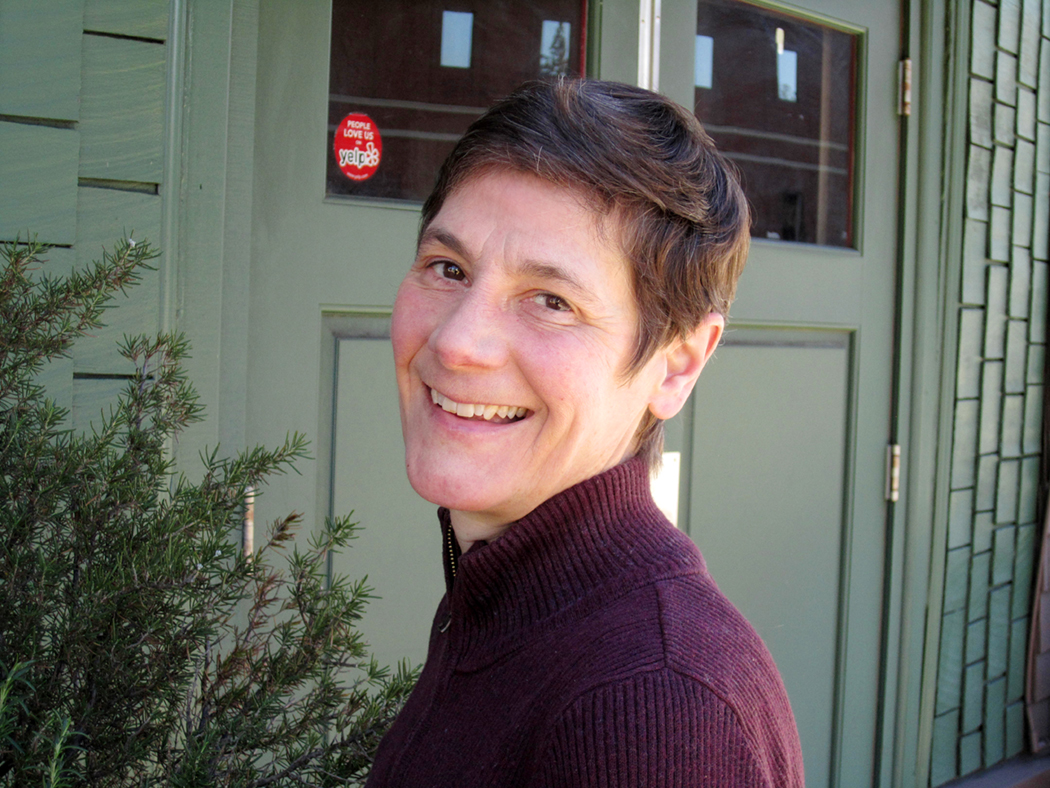Susan Evans knows nothing is permanent in the theater. Nor should it be—theaters must evolve to stay relevant, says Live Arts’ artistic director.
“A successful theater is a theater that never stops examining itself,” Evans says. “I think that many theaters get stuck. And it’s easy to get stuck because of money.”
Evans got her own taste of impermanence in August 2020. That’s when she was laid off as artistic director at the Town Hall Theatre Company in the San Francisco Bay Area.
The change put things in perspective for Evans, who’s spent nearly 20 years working in arts direction. “This is my fourth artistic director position—I’m just hoping to get it right,” she says.
Evans’ ouster on the West Coast was outside her control. The Town Hall Theatre told local media outlets the move was driven by budget considerations, and the theater’s leadership praised Evans, noting her “deep artistic vision and theater acumen.”
But budget cuts have, indeed, meant curtains for many community theaters nationwide. According to data from the National Endowment for the Arts, theater, dance, and other performing arts companies lost nearly 60 percent of their employees from March to April 2020. Theaters owning, renting, or leasing space suffered most, with many having to shut their doors.
Theaters in and around Charlottesville struggled like many nationwide. Staunton’s nearly 70-year-old Oak Grove Theater went to a virtual model for 2020 but returned for 2021. Barboursville’s Four County Players has likewise returned to a live season for 2021-22, but Gorilla Theater Productions, which leased a multi-use space on Allied Lane off McIntire Road, announced it was seeking a tenant to take over the facility in July 2020. Bent Theatre, which used Gorilla’s space for improv comedy shows, has moved to virtual productions for the time being.
Anecdotal evidence suggests volunteer organizations like Live Arts and more flexible theaters not tied to leased or rented spaces have had more success than others. The Charlottesville Players Guild, which performs at the Jefferson School African American Heritage Center, announced that its 2022-23 Black Indigeneity season will include classes and a podcast that follows the production journey. And the Charlottesville Playwrights Collective is producing live plays in the Belmont Arts Collaborative theater on Carlton Road.
For its part, Live Arts stayed afloat with streaming performances and general community outreach. “We reinvented the wheel,” Audience Experience Manager Darryl Smith says.
As Evans sought a new position and Live Arts went through its own pandemic pains, the local theater advertised for a new artistic director. Evans had visited Charlottesville many times—her mother was at the Westminster Canterbury of the Blue Ridge senior living center for 15 years. But in all her visits, she had never heard of Live Arts.
“It was completely new to me, but you can tell a lot about a company just by looking at the kinds of shows being done,” Evans says.
What she saw impressed her. She credits Live Arts for doing, “for lack of a better word, edgier” shows from its inception up to now, and exploring topics that challenge audiences.
In today’s charged political environment—and especially in a place like Charlottesville—Evans says taking on the big issues is more important than ever. At Live Arts, she says she won’t have to rework the theater’s vision. But she does plan to put her stamp on the lineup.
The current season launched on October 15 with Every Brilliant Thing. Directed by Clinton Johnson, the single-actor play digs deep into mental health. The season also addresses LGBTQ+ issues, the environment, and politics; this week’s opening of Pipeline (see story on page 16), by contemporary African American playwright Dominique Morisseau, has been highly anticipated.
“We don’t want it to just be lip service—we have a commitment to talk about LGBTQ and under-resourced communities, and that needs to be expressed in the kind of work we do,” Evans says. “Are you putting on a play with an all-white cast or an all-male cast or an all-cisgendered cast? What stories are being told?”
Evans will direct the season’s final play, Accidental Death of an Anarchist, a political farce by Italian Dario Fo that explores police brutality and government overreach. Directing pieces that speak to what’s going on in the community and nation is something Live Arts’ new artistic director plans to continue doing throughout her tenure.
And while Live Arts’ current season has gone well so far, theaters across the country are still struggling with pandemic-related issues. Live Arts will require everyone other than active performers to wear masks in the space, but in some U.S. theaters, unmasked performers have drawn backlash. Live Arts will also ask volunteers and audience members 18 and over to show proof of full vaccination, practice social distancing where possible, and stay home if they are feeling sick or have a recent COVID exposure.
As Live Arts navigates this next act, Evans looks forward to continuing to evolve along with the theater.
“I have grown up with one artistic director model that’s fairly top-down, and I need to expand my own mind and view of diversified leadership,” she says. “More voices need to be heard.”
On stage at Live Arts in 2022
Pipeline
January 14-30, 2022
Written by Dominique Morisseau
Directed by David Vaughn Straughn
The Legend of Georgia McBride
March 4-27, 2022
Written by Matthew Lopez
The Children
April 15-May 7, 2022
Written by Lucy Kirkwood
Directed by Betsy Rudelich Tucker
Accidental Death of an Anarchist
May 20-June 5, 2022
Written by Dario Fo
Directed by Susan Evans
